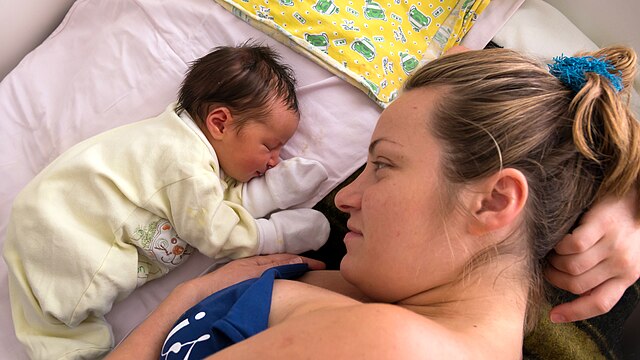Introduction
Recognizing the signs of PPD and seeking professional help are crucial steps in the journey to recovery. Effective communication with your healthcare provider is key to ensuring you receive the appropriate care and support. This guide aims to help you navigate the conversation with your doctor about PPD, providing you with tips, questions to ask, and what to expect during the process.
Why Communication with Your Doctor is Important
Effective communication with your doctor can lead to early diagnosis and treatment, which can significantly improve outcomes for both you and your baby. Here’s why it’s important:
- Accurate Diagnosis: Your doctor can distinguish between baby blues, PPD, and other mental health issues.
- Tailored Treatment: Based on your symptoms, your doctor can recommend the most effective treatment plan.
- Support and Resources: Your doctor can provide information on support groups, counseling services, and other resources.

Preparing for Your Appointment
Keep a Symptom Diary
Recording your symptoms, including their frequency and severity, can help your doctor better understand your condition. Note any patterns or triggers that you observe.
List Your Concerns
Write down any questions or concerns you have about your mental health. This ensures that you don’t forget to discuss important points during your appointment.
Bring a Support Person
Having a trusted friend or family member accompany you can provide emotional support and help you remember the doctor’s advice.
What to Expect During the Appointment
Discussing Your Symptoms
Be open and honest about your feelings and symptoms. Describe how they affect your daily life and your ability to care for your baby.
Answering Questions
Your doctor will likely ask questions about your medical history, mental health history, and any medications you are currently taking. Answering these questions accurately is crucial for an accurate diagnosis.
Mental Health Screening
Your doctor may use standardized screening tools, such as the Edinburgh Postnatal Depression Scale (EPDS), to assess your symptoms.
Questions to Ask Your Doctor
- What are the treatment options for postpartum depression?
- How long will treatment take?
- Are there any side effects of the recommended treatments?
- Can I continue breastfeeding while taking medication for PPD?
- Are there any support groups or counseling services available?
- What should I do if my symptoms worsen or I have thoughts of harming myself or my baby?
- How often should I schedule follow-up appointments?
Treatment Options
Psychotherapy
Talking to a therapist can help you manage your symptoms and develop coping strategies. Cognitive-behavioral therapy (CBT) and interpersonal therapy (IPT) are commonly used for PPD.
Medication
Antidepressants may be prescribed to help manage your symptoms. Your doctor will discuss the benefits and potential risks, including any implications for breastfeeding.
Support Groups
Joining a support group can provide a sense of community and understanding from others who are going through similar experiences.
Self-Care Strategies
- Prioritize Rest: Sleep when your baby sleeps to help combat fatigue.
- Healthy Diet: Eat balanced meals to maintain your energy levels.
- Exercise: Gentle exercise, like walking, can help improve your mood.
- Accept Help: Don’t hesitate to ask for help from friends and family.
Follow-Up and Monitoring
Regular Appointments
Schedule regular follow-up appointments to monitor your progress and make any necessary adjustments to your treatment plan.
Stay in Touch
Keep in contact with your doctor between appointments if you experience any changes in your symptoms or have concerns about your treatment.
Conclusion
Communicating effectively with your doctor about postpartum depression is essential for receiving the care you need. By preparing for your appointment, being honest about your symptoms, and asking the right questions, you can take an active role in your treatment and recovery.
If you or someone you know is struggling with postpartum depression, know that help is available. Speak to a healthcare provider, reach out to loved ones, and remember that healing is possible.
Referecnes
- American Psychiatric Association. (2020). What Is Postpartum Depression? Retrieved from APA.
- Mayo Clinic Staff. (2021). Postpartum Depression. Mayo Clinic. Retrieved from Mayo Clinic.
- National Institute of Mental Health. (2021). Postpartum Depression Facts. Retrieved from NIMH.
- Postpartum Support International. (2021). Postpartum Depression. Retrieved from PSI.
- Beck, C. T. (2006). Postpartum Depression: It Isn’t Just the Blues. American Journal of Nursing, 106(5), 40-50.
- O’Hara, M. W., & McCabe, J. E. (2013). Postpartum Depression: Current Status and Future Directions. Annual Review of Clinical Psychology, 9, 379-407.
- Wisner, K. L., Chambers, C., & Sit, D. K. (2006). Postpartum Depression: A Major Public Health Problem. JAMA, 296(21), 2616-2618.
- Gaynes, B. N., Gavin, N., Meltzer-Brody, S., Lohr, K. N., Swinson, T., Gartlehner, G., … & Miller, W. C. (2005). Perinatal Depression: Prevalence, Screening Accuracy, and Screening Outcomes. Evidence Report/Technology Assessment No. 119. Rockville, MD: Agency for Healthcare Research and Quality.
- Stewart, D. E., & Vigod, S. N. (2016). Postpartum Depression: Pathophysiology, Treatment, and Emerging Therapeutics. Annual Review of Medicine, 67, 231-243.
- Cox, J. L., Holden, J. M., & Sagovsky, R. (1987). Detection of Postnatal Depression: Development of the 10-item Edinburgh Postnatal Depression Scale. British Journal of Psychiatry, 150(6), 782-786.
- Sit, D., Luther, J., Buysse, D., & Wisner, K. L. (2016). Suicidal Ideation in Depressed Postpartum Women: Associations with Childhood Trauma, Sleep Disturbance, and Anxiety. Journal of Psychiatric Research, 82, 103-108.
- Yawn, B. P., Olson, A. L., Bertram, S., Pace, W., Wollan, P., & Dietrich, A. J. (2012). Postpartum Depression: Screening, Diagnosis, and Management Programs. Journal of the American Board of Family Medicine, 25(3), 333-338.
- National Institute for Health and Care Excellence. (2014). Antenatal and Postnatal Mental Health: Clinical Management and Service Guidance. Retrieved from NICE.
- Milgrom, J., & Gemmill, A. W. (2015). Identifying Perinatal Depression and Anxiety: Evidence-based Practice in Screening, Psychosocial Assessment, and Management. John Wiley & Sons.
- Grote, N. K., Bridge, J. A., Gavin, A. R., Melville, J. L., Iyengar, S., & Katon, W. J. (2010). A Meta-analysis of Depression During Pregnancy and the Risk of Preterm Birth, Low Birth Weight, and Intrauterine Growth Restriction. Archives of General Psychiatry, 67(10), 1012-1024.
- Lindahl, V., Pearson, J. L., & Colpe, L. (2005). Prevalence of Suicidality During Pregnancy and the Postpartum. Archives of Women’s Mental Health, 8(2), 77-87.
- O’Hara, M. W., & Swain, A. M. (1996). Rates and Risk of Postpartum Depression—a Meta-analysis. International Review of Psychiatry, 8(1), 37-54.
- Dennis, C. L., & Hodnett, E. (2007). Psychosocial and Psychological Interventions for Treating Postpartum Depression. Cochrane Database of Systematic Reviews, (4).
- Beck, C. T. (1995). The Effects of Postpartum Depression on Maternal-Infant Interaction: A Meta-analysis. Nursing Research, 44(5), 298-305.
- Battle, C. L., Salisbury, A. L., Schofield, C. A., Ortiz-Hernandez, S., & Wisner, K. L. (2013). Perinatal antidepressant use: Understanding women’s preferences and concerns. Journal of Psychiatric Practice, 19(6), 443-453.
- Bennett, I. M., Marcus, S. C., Palmer, S. C., & Coyne, J. C. (2010). Pregnancy-related discontinuation of antidepressants and depression care visits among Medicaid recipients. Psychiatric Services, 61(4), 386-391.
- Boyce, P., & Hickey, A. (2005). Psychosocial risk factors to major depression after childbirth. Social Psychiatry and Psychiatric Epidemiology, 40(8), 605-612.
- Buttner, M. M., Brock, R. L., O’Hara, M. W., & Stuart, S. (2015). Efficacy of yoga for depressed postpartum women: A randomized controlled trial. Complementary Therapies in Clinical Practice, 21(2), 94-100.
- Cox, J. L., Murray, D., & Chapman, G. (1993). A controlled study of the onset, duration and prevalence of postnatal depression. British Journal of Psychiatry, 163(1), 27-31.
- Eberhard-Gran, M., Eskild, A., Tambs, K., Opjordsmoen, S., & Samuelsen, S. O. (2001). Review of validation studies of the Edinburgh Postnatal Depression Scale. Acta Psychiatrica Scandinavica, 104(4), 243-249.
- Field, T., Diego, M., Hernandez-Reif, M., Medina, L., Delgado, J., & Hernandez, A. (2012). Yoga and massage therapy reduce prenatal depression and prematurity. Journal of Bodywork and Movement Therapies, 16(2), 204-209.
- Georgiopoulos, A. M., Bryan, T. L., Yawn, B. P., Houston, M. S., Rummans, T. A., & Therneau, T. M. (2001). Population-based screening for postpartum depression. Obstetrics & Gynecology, 98(4), 681-687.
- Goyal, D., Gay, C. L., & Lee, K. A. (2010). Patterns of sleep disruption and depressive symptoms in new mothers. Journal of Perinatal & Neonatal Nursing, 24(4), 302-310.
- Hall, H. G., Beattie, J., Lau, R., East, C., & Biro, M. A. (2016). Mindfulness and perinatal mental health: A systematic review. Women and Birth, 29(1), 62-71.
- Kingston, D., McDonald, S., Austin, M. P., & Tough, S. (2015). Association between prenatal and postnatal psychological distress and toddler cognitive development: A systematic review. PLoS One, 10(5), e0126929.
- Kingston, D., McDonald, S., Austin, M. P., & Tough, S. (2015). Prenatal and postpartum maternal psychological distress and infant development: A systematic review. Child Psychiatry & Human Development, 46(3), 438-451.


